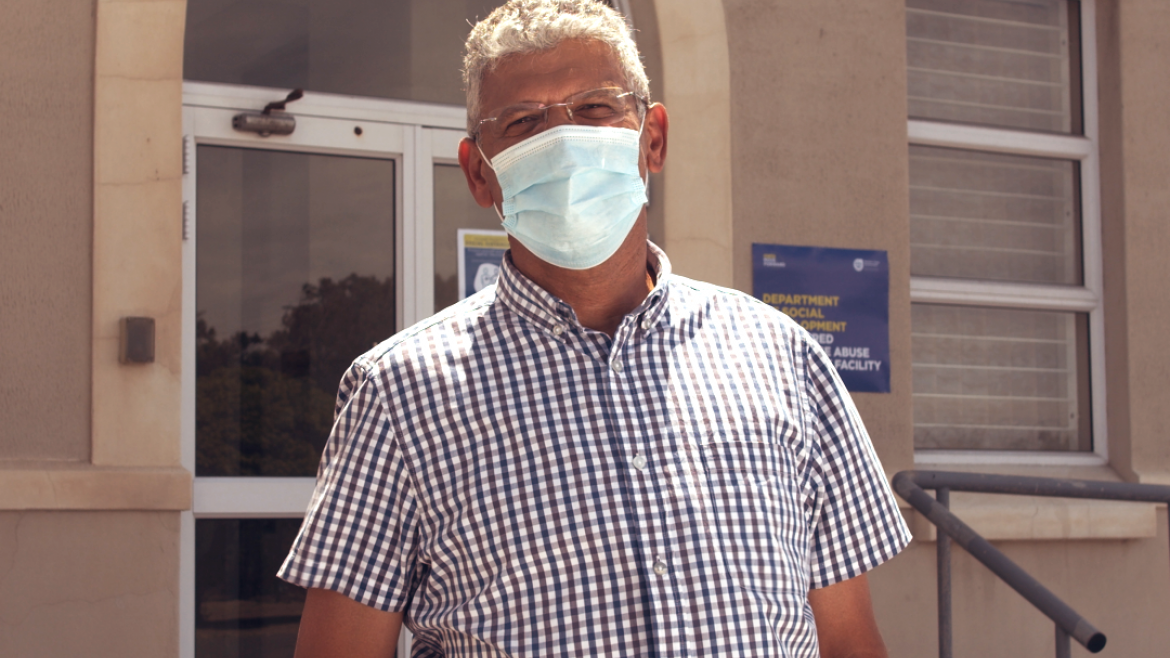Treatment Options
Getting the necessary help
If you or someone you care about has a substance use disorder problem or you might feel that you can’t cope with the symptoms of substance use disorder in your home or place of work, getting help is the first step.
How do you go about it?
Approach
Don’t ignore the problem, hoping things may change on its own, won’t help your situation. Do something about it, below are some options:
- Talk to the person using drugs about your concerns, and offer your help and support. The earlier the problem can be detected, the sooner it can be treated;
- Be prepared for behaviour that’s expressed as excuses and denial;
- Don’t get so caught up in someone else’s drug problem that you neglect your own needs. Make sure you have people you can talk to and lean on for support;
- Stay safe, don’t put yourself in dangerous situations;
- You may consider joining a support group;
- Your help and support might be crucial in the process of your loved one getting better. Try not to give up, he or she may not get better without your help;
- Don’t make excuses or try to hide the problem. It’s natural to want to help a loved one in need, but protecting them from the negative consequences of their choices may keep them from getting the help they need.
Assessment
The first step to attending to the problem is assessment. Assessment will determine the type of treatment that is required. A trained healthcare professional or social worker will conduct an assessment of the substance user in order to plan a course of action.
You’ll be able to have an assessment done at a local office of the Department of Social Development, or any community-based organisation that provides substance use disorder services.
Treatment
Access to treatment isn’t dependent on where you live, that means that you can go to any facility outside of where you live or work to get help. Various types of interventions exist, depending on the assessments, for example:
- Early intervention services: A person that is considered for early intervention services would have started experimenting with substances, but has not developed a dependency on the substance. Early intervention services are rendered within communities
- Community-based treatment: Community-based treatment is a service rendered to a person who is engaging in harmful drug and alcohol use and to the people who are adversely affected by his or her behaviour. This type of treatment involves attending regular sessions, the person can maintain his/her employment, have the support of their family and it’s less costly than inpatient treatment. Clients may need one service above others and may not necessarily need to access all of the services available. This is especially effective with aftercare support services because the client may obtain assistance in their specific areas of need. This type of treatment also allows the person to be an active member of society with less disruption to their normal functioning. The service is provided while the client is exposed to their usual environmental stressors. Clients then immediately apply skills obtained in therapy. They also have a greater opportunity to have increased family involvement in the treatment period.
- Inpatient treatment services: Inpatient facilities cater for the needs of clients at a certain spectrum in the cycle of substance dependence. This type of client is evaluated by a professional in the field and treatment requires the patient to be removed from their current environment for a prolonged period of time. A multi-disciplinary intervention, provided by mental health professionals, is required. Treatment centres follow a biopsychosocial approach, the health, mental, and social dimensions of the client are addressed. Inpatient treatment services may only be provided by a registered treatment facility. Treatment duration differs from facility to facility.
- Aftercare services are important because there are no quick fixes for substance use disorder. It is a lifestyle change that requires constant work by both the person using substances and their support structure. After treatment, the person with substance use disorder is provided with aftercare services to manage and maximise the benefits gained during inpatient or outpatient treatment. Studies show outcomes are better when a person stays in treatment for longer. There is also the possibility of a recovering user experiencing a relapse. Treatment is available for people who relapse.
Support
Support groups are clusters of people who get together on a regular basis to share the problems they face in trying to break free of a drug or alcohol habit. They also discourage each other from using dependence-causing substances. Such support groups / organisations may also include the family / friends / caregivers of the substance user, at any stage on the road to recovery.
Call our toll-free number 0800 220 250 to obtain more information about available organisations that render support group services.
The process:
The following points are important to note about registered facilities:
- Inpatient Treatment facilities are exclusively registered by the Department of Social Development.
- The registration certificate should be clearly displayed at the facility. If not, service users reserve the right to demand to see the registration certificate.
- The registration certificate is only valid for five years from the date of issue. This date should be clearly visible on the registration certificate along with the maximum amount of service users that the facility is allowed to accommodate.
Service users should note that no single treatment option is better than the other. Services are prescribed for service users according to the individual’s treatment needs.
Unregistered treatment facilities: Unregistered treatment centres may not comply with the prescribed norms and standards, hence people accessing such services should be aware that they run the risk of being scammed and swindled out of money. In worst case scenarios they may have their rights violated, run the risk of injury, even death. Unregistered facilities may not have trained staff, expertise or resources to deal with crises and/or complications associated with addiction.
The Department of Social Development maintains a provincial database for all registered treatment options within the province. Contact the provincial office, substance abuse programme to check the registration status of any service providers treating substance use disorders within the province.
For more information on how to get help call 0800 220 250 or visit our local offices at the Department of Social Development.
Roles and responsibilities: The client will likely be subjected to the same environment and circumstances after they went for treatment. The caregiver should be mindful of their role as a support structure, they should not try to do “too much” for the client. The roles and responsibilities of parents/caregivers and people with drug addiction problems should be clearly defined so that the affected person is able to function independently as an individual in society.
Families consist of individuals, but are connected as a whole. Parts within the system are simultaneously independent and interdependent. If one person has a substance use disorder in the family, it impacts the whole family. Therefore, the family’s involvement in the programme is of great importance. Practicalities to consider as family/ caregiver are:
- Attend sessions and become involve in the therapeutic programme;
- Provide moral and emotional support;
- Be clear about rules and boundaries;
- Help the family member to follow treatment recommendations;
- Encourage abstinence from alcohol and other drugs;
- Encourage sober peer relationships;
- Encourage involvement in structured activities;
- Encourage participation in support groups;
- Help the family member to build good coping skills;
- Promote effective communication within the household;
- Reduce family friction, but do not avoid conflict. Deal with conflict in an appropriate manner;
- Understand and know the signs of relapse;
- Understand and know your family member’s triggers and assist the family member in avoiding them; and
- Be mindful of negative support e.g. over-involvement in the decision making of the person with a drug addiction problem.
Source: [TRI Science – Partnership for drug free kids (Hazelden Publishers); and https://www.drugabuse.gov/]
Benefits of family involvement:
- Understanding the concept of addiction;
- Support in ensuring sustained recovery;
- Minimize family stress and caregiver burnout;
- Learn new ways in dealing with problems caused by addiction;
- Increased emotional health for family;
- Decreased conflict, isolation and loneliness.


